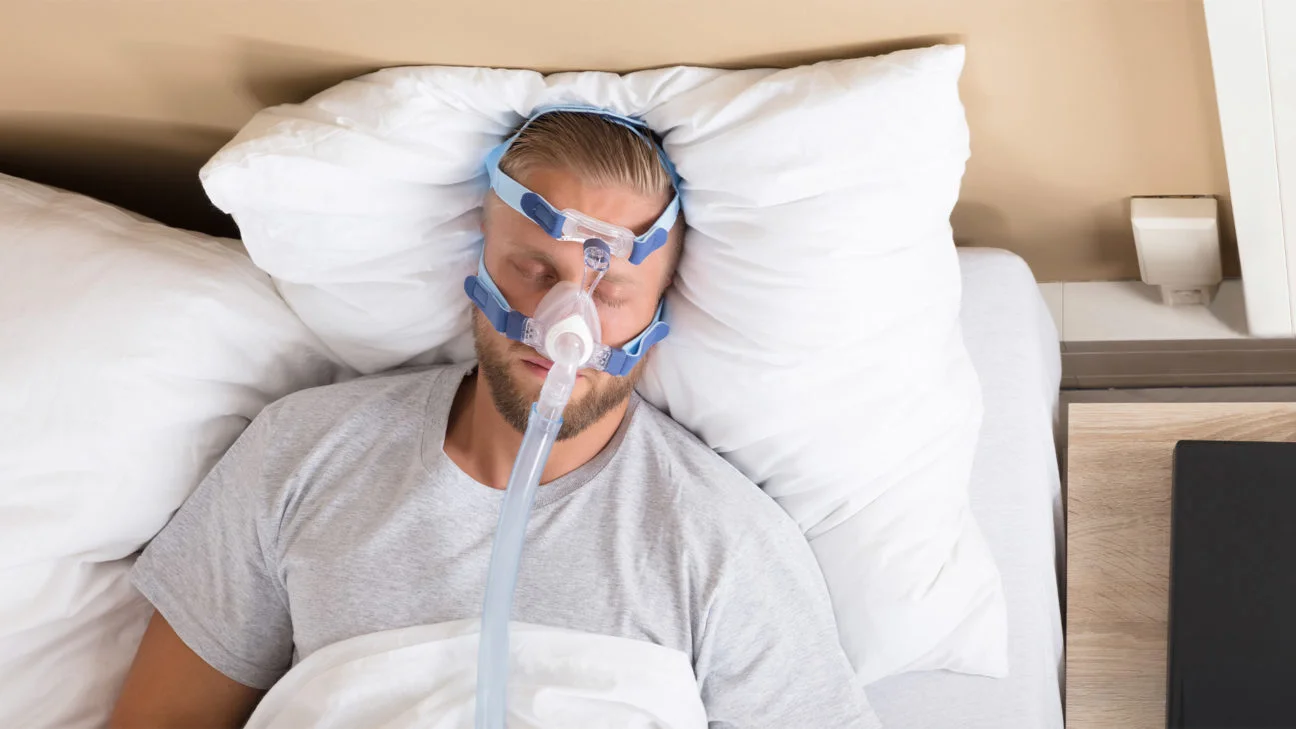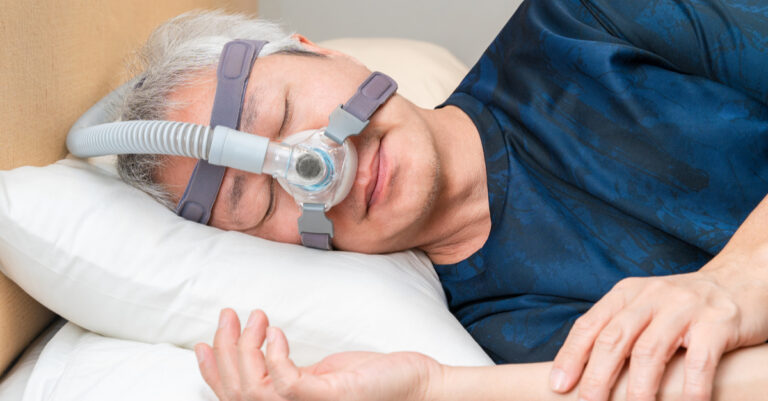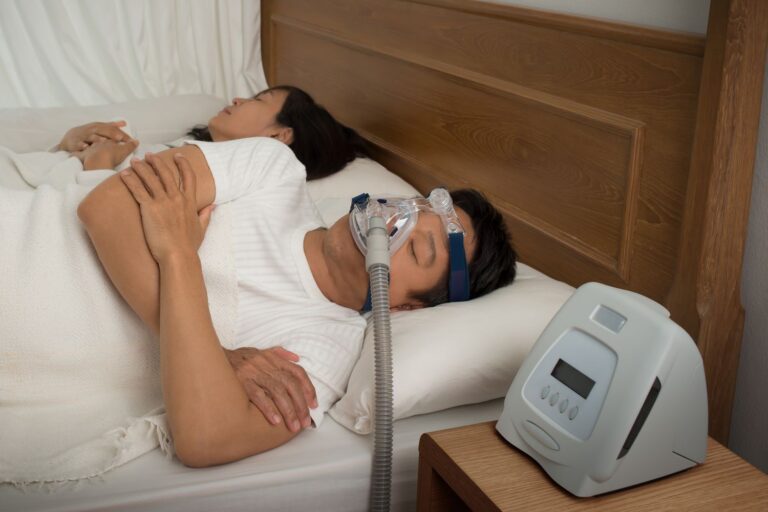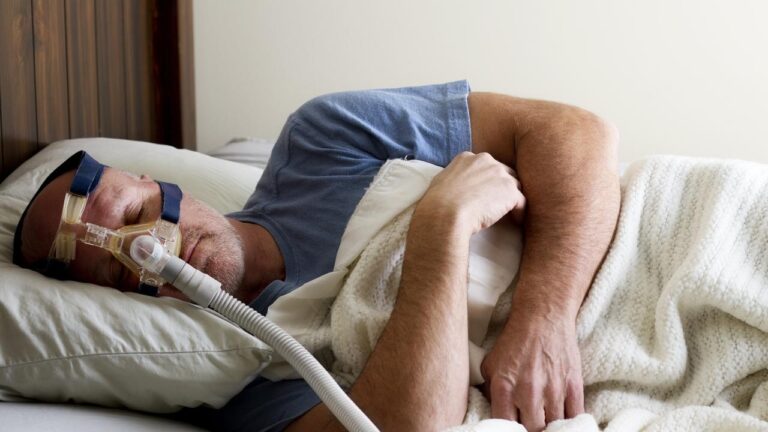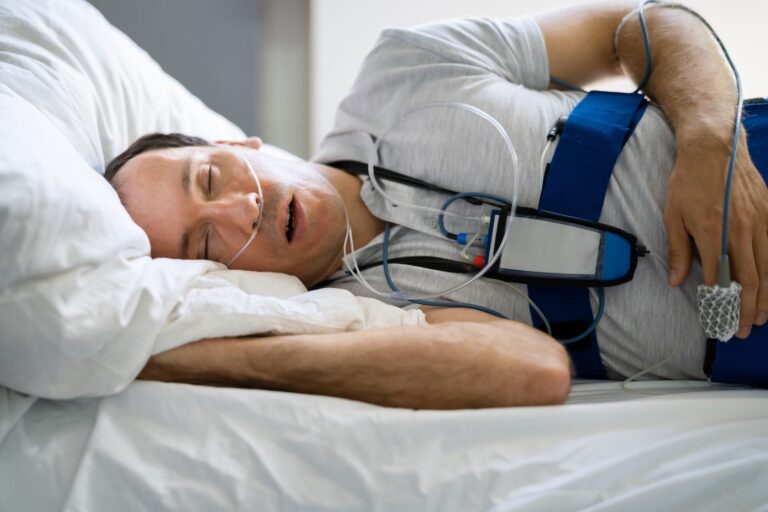If you suspect you may be suffering from sleep apnea, it is important to get tested as soon as possible. Sleep apnea is a serious sleep disorder that affects millions of people worldwide. It is characterized by pauses in breathing or shallow breathing during sleep, which can lead to restless nights and daytime fatigue. To determine whether you have sleep apnea, you will need to undergo a sleep apnea test. In this quick guide, we will explore the different types of sleep apnea tests available and provide you with tips to find a sleep apnea test near you.
Understanding Sleep Apnea
Sleep apnea is a condition that affects the way you breathe while you sleep. It occurs when your airway becomes blocked or collapses, leading to several pauses in breathing throughout the night. These pauses can last for a few seconds to a minute and can occur multiple times an hour. The two most common types of sleep apnea are obstructive sleep apnea (OSA) and central sleep apnea (CSA).
By understanding sleep apnea, the importance of sleep apnea testing, the different types of sleep apnea tests available, and how to find a sleep apnea test near me, you are well-equipped to take control of your sleep health. Remember, early detection and treatment of sleep apnea can make a significant difference in your quality of life. Don’t hesitate to reach out to healthcare professionals and take the necessary steps to locate a sleep apnea test near you.
Obstructive sleep apnea (OSA) is the most common type of sleep apnea. It occurs when the throat muscles relax, causing a blockage in the upper airway. This obstruction prevents air from flowing freely, leading to pauses in breathing.
Central sleep apnea (CSA), on the other hand, is less common and occurs when the brain fails to send the proper signals to the muscles that control breathing. This results in a lack of effort to breathe during sleep.
Understanding the impact of sleep apnea on your overall health is crucial. In addition to the physical symptoms, such as loud snoring and daytime sleepiness, untreated sleep apnea can also contribute to mental health issues like depression and anxiety. The disrupted sleep patterns caused by sleep apnea can lead to irritability, mood swings, and difficulty concentrating during the day.
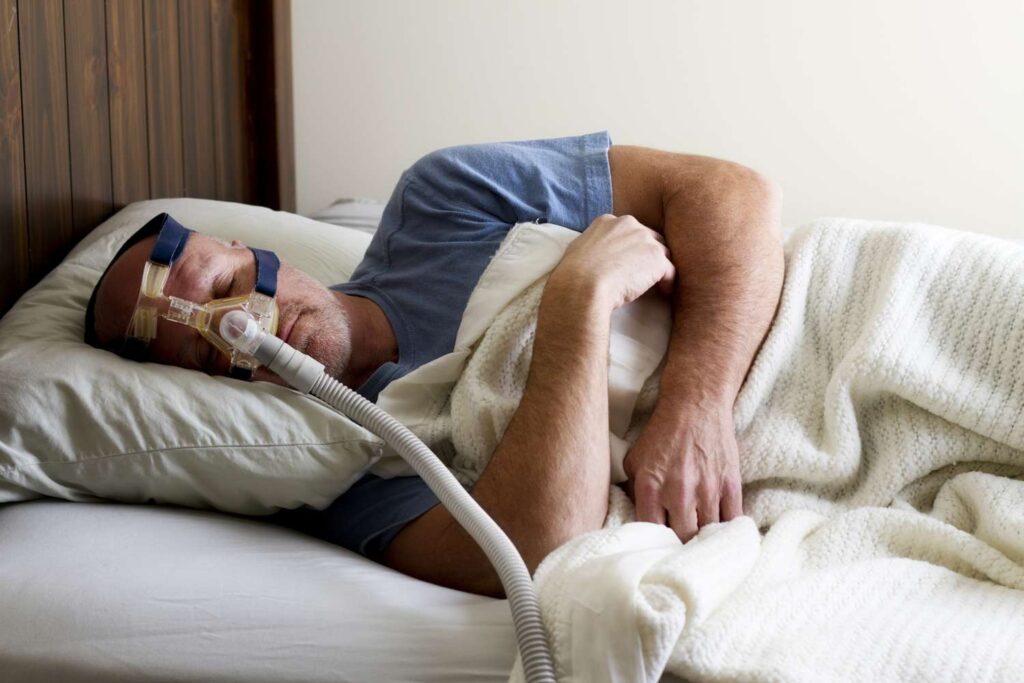
Symptoms and Risks of Sleep Apnea
Sleep apnea can have a significant impact on your health and well-being. Common symptoms of sleep apnea include loud snoring, excessive daytime sleepiness, waking up gasping or choking, morning headaches, and difficulty concentrating. If left untreated, sleep apnea can increase the risk of heart attack, stroke, high blood pressure, and other serious health conditions.
The Importance of Sleep Apnea Testing
A timely diagnosis of sleep apnea is crucial for effective treatment and improved quality of life. If you suspect you may have sleep apnea, it is important to undergo a sleep apnea test to determine the severity of your condition.
Sleep apnea is a common sleep disorder characterized by pauses in breathing or shallow breaths during sleep. These interruptions can lead to fragmented sleep, daytime fatigue, and other health issues if left untreated. By undergoing a sleep apnea test, individuals can receive a proper diagnosis and begin appropriate treatment to manage their condition.
Diagnosis of Sleep Apnea
Sleep apnea tests are designed to evaluate your breathing patterns and oxygen levels while you sleep. These tests can help healthcare professionals diagnose the presence and severity of sleep apnea.
During a sleep apnea test, various parameters are monitored, including airflow, respiratory effort, oxygen saturation, and heart rate. These measurements provide valuable information about the frequency and duration of breathing disruptions during sleep, aiding in the diagnosis and classification of sleep apnea.
Benefits of Early Detection
Early detection of sleep apnea allows for early intervention and treatment, which can help reduce health risks and improve sleep quality. With proper management, you can minimize the impact of sleep apnea on your overall well-being.
Untreated sleep apnea has been associated with an increased risk of cardiovascular problems, such as hypertension, heart disease, and stroke. By undergoing timely sleep apnea testing and receiving appropriate treatment, individuals can lower their risk of developing these serious health conditions and improve their overall quality of life. Read more about hypertension on https://www.nhlbi.nih.gov/health/high-blood-pressure
Different Types of Sleep Apnea Tests
There are different types of sleep apnea tests available, each catering to individual needs and preferences. The two main types of sleep apnea tests are home sleep apnea tests and in-lab sleep studies.
When it comes to diagnosing sleep apnea, having options is crucial. Understanding the different types of tests available can help individuals make informed decisions about their health and well-being.
Home Sleep Apnea Tests
Home sleep apnea tests are portable devices that you can use in the comfort of your own home to monitor your sleep patterns. These tests typically involve wearing a small device that records your breathing patterns, oxygen levels, and other vital signs while you sleep. Home sleep apnea tests are convenient and can provide valuable information to healthcare professionals for diagnosis.
Individuals who prefer the comfort of their own bed and surroundings may find home sleep apnea tests to be a less intimidating option. These tests offer a glimpse into one’s nightly sleep habits without the need to spend a night away from home.
In-Lab Sleep Studies
If your healthcare provider determines that an in-lab sleep study is necessary, you will need to spend a night at a specialized sleep center. During an in-lab sleep study, healthcare professionals will monitor your sleep patterns, breathing, heart rate, and brain activity. These comprehensive studies provide a detailed analysis of your sleep and can help identify the underlying causes of your sleep apnea.
For individuals requiring a more in-depth analysis of their sleep patterns, in-lab sleep studies offer a comprehensive approach. Being monitored by trained professionals in a controlled environment can provide a more detailed assessment of one’s sleep quality and potential issues.
How to Find a Sleep Apnea Test Near You
To find a sleep apnea test near you, there are several resources and steps you can take.
Are you constantly feeling fatigued during the day, even after a full night’s sleep? Do you snore loudly or wake up gasping for air? These could be signs of sleep apnea, a potentially serious sleep disorder that requires proper diagnosis and treatment. If you suspect you may have sleep apnea, it’s essential to undergo a sleep apnea test to determine the best course of action for your health and well-being. To learn more about gasping click here.
Using Online Resources
Start your search by utilizing online resources. Many sleep centers and clinics have websites that provide detailed information about the services they offer, including sleep apnea testing. Use search engines and online directories to find sleep centers in your area and read reviews or testimonials to get an idea of the quality of their services.
When browsing through online resources, look for sleep centers that are accredited by organizations such as the American Academy of Sleep Medicine (AASM) or the Joint Commission. Accredited centers adhere to strict standards of care and have proven track records in diagnosing and treating sleep disorders, including sleep apnea.
Consulting with Your Healthcare Provider
Your healthcare provider can be an invaluable resource in helping you find a sleep apnea test near you. Schedule an appointment to discuss your symptoms and concerns, and they can provide you with a referral to a sleep specialist or sleep center that offers sleep apnea testing.
During your consultation with your healthcare provider, be prepared to provide detailed information about your sleep patterns, snoring habits, and any other symptoms you may be experiencing. This information will help your provider determine the most appropriate course of action, whether it’s a home sleep apnea test or an in-lab polysomnography (PSG) test at a sleep center.
Preparing for a Sleep Apnea Test
Once you have located a sleep apnea test near you, it is important to prepare for the test to ensure accurate results. Taking the time to properly prepare will help you get the most out of your sleep study and provide valuable information for your healthcare provider.
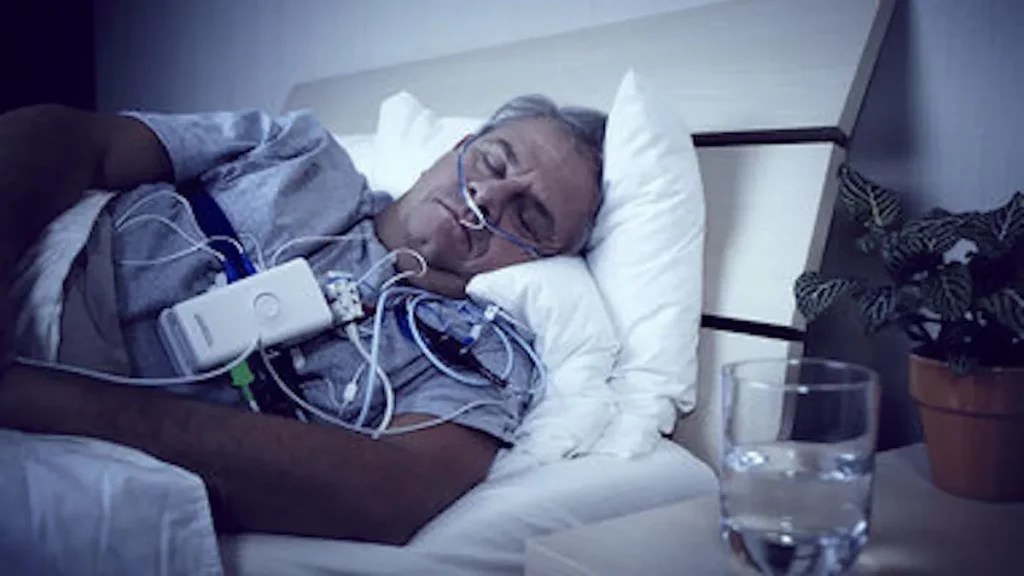
What to Expect During the Test
Before the test, your healthcare provider will provide you with instructions on how to prepare. This may include avoiding caffeine or certain medications, as they can interfere with the results. It is important to follow these instructions carefully to ensure accurate and reliable results.
On the day of the test, you will be instructed to arrive at the sleep center at a specific time. It is important to be punctual, as any delays may affect the overall duration of the test. Be sure to bring any necessary items, such as comfortable sleepwear and personal toiletries, to make your stay at the sleep center more comfortable.
During the test, sensors will be placed on your body to monitor your breathing, heart rate, and other vital signs while you sleep. These sensors are non-invasive and painless, ensuring that you can sleep as naturally as possible during the study. The data collected from these sensors will provide valuable insights into your sleep patterns and help diagnose any potential sleep apnea.
Tips for a Successful Sleep Study
To ensure a successful sleep study, try to maintain your usual sleeping habits as much as possible. This means going to bed and waking up at your regular times. By doing so, you provide a more accurate representation of your typical sleep patterns, allowing the healthcare provider to make a more informed diagnosis.
Additionally, it can be helpful to bring items that will help you relax and feel comfortable during the study. Consider bringing your favorite pillow, a cozy blanket, or a book to help you unwind before falling asleep. Creating a familiar and soothing environment can contribute to a more restful night’s sleep.
Lastly, make sure to follow any additional instructions provided by your healthcare provider. These instructions may include dietary restrictions, specific activities to avoid before the study, or any other relevant information. By following these instructions, you can ensure that the results of your sleep study are as accurate and informative as possible.
Other resources: How to Get a Bulk-Billed Sleep Apnea Test

